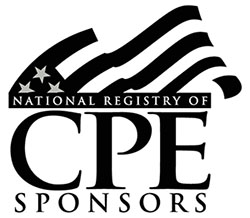
A Two-Day Classroom Seminar (CPE Approved)
Utility companies face a variety of unique accounting and financial reporting challenges. Whether you're a financial professional in the industry, or an analyst following the sector who needs to understand how those challenges impact the utility business, this program will give you a more nuanced perspective. You'll come away with a solid understanding of the impact of financial reporting and regulatory accounting components of an electric or gas utility.
- Engage in discussions of real life case studies, explaining the interaction of rate base, rate of return and operating expenses in determining revenue requirements
- Gain experience tracing the effects of the ratemaking process on utility accounting (ASC980) and in a utility's financial statements
- Learn the essential differences between GAAP and FERC financial reporting requirements
- Interact with subject matter experts on a wide range of topics, including utility plant depreciation, funds used during construction (AFUDC) and capitalization methods used for utility plants
- Acquire the knowledge to compare income tax accounting and concepts of normalization and flow-through
- Special features of the utility balance sheet and income statements
- Compliance with accounting and financial rules
- How revenues are calculated for the common customer classes
- Calculations and components of a rate order
- The special accounting and regulatory issues facing utilities' income taxes
- How the convergence of the International Financial Reporting Standards (IFRS) with GAAP will challenge utilities and what it will likely take to comply with the standards
DAY ONE Â
7:30 am
Registration and Continental Breakfast Open
8:30 am
Ratemaking Process and How Revenue Requirements Are Determined Under Traditional Rate Regulation
Overview of the role of regulatory commissions (state and Federal (FERC)) including which activities are regulated, how they are regulated, discussion of the general requirements associated with a traditional rate case. The session will include an example explaining the interaction of rate base, rate of return and operating expenses in determining revenue requirements. The session is designed to:
- Provide an overview of the regulatory processÂ
- Discuss the general rate making formulaÂ
- Highlight areas where accounting and reporting issues exist specific to regulated utility companies
Alan D. Felsenthal
Managing Director, Power & Utilities
PricewaterhouseCoopers, LLP
9:45 am
Refreshment Break
10:00 am
Revenue Requirements Case Study
This session will follow a simplified revenue requirement case study, focusing on the calculations of rate base, rate of return and operating expenses and summing to a revenue requirement. This exercise will provide a recap of concepts discussed previously and allow participants to see how the various rate case components interact.
Alan D. Felsenthal
Managing Director, Power & Utilities
PricewaterhouseCoopers, LLP
11:00 am
Accounting for the Effects of Rate Regulation
The ratemaking process creates a unique link between costs and revenues. ASC 980 addresses the financial accounting and financial statement impact of this process. In this section we will cover the general and specific accounting standards that exist for rate regulated enterprises as well as certain unique financial statement disclosures typically required by rate regulated entities. The following issues will be addressed:
- Scope requirements
- Regulatory Assets and Liabilities
- Discontinuation of regulatory accounting
Alan D. Felsenthal
Managing Director, Power & Utilities
PricewaterhouseCoopers, LLP
12:00 pm
Lunch
1:00 pm
New Accounting Guidance for Revenue and Leases
Participants will discuss the recent FASB and IFRS activities in the area of revenue recognition and leases including how and when power purchase agreements are treated more as leases. The session will also discuss implications for FERC reporting and rate case filings, including
- Tolling arrangements
- Renewable Energy PPA Contracts
- New Disclosures
- Alternatives to leasing and potential changes
John F. Lathrop
Partner
KPMG LLP
2:00 pm
FASB/IFRS Convergence
- The American Institute of Certified Public Accountants has recommended to the Securities and Exchange Commission (SEC) the adoption of International Financial Reporting Standards. Find out how the convergence of IFRS with U.S. Generally Accepted Accounting Principles (GAAP) will challenge utilities and what it will likely take to comply with the standards. Among the topics of discussion are the challenges to the balance sheet and income statement, including Component Depreciation
- Asset Removal Obligations and Asset Impairment
- Accounting for the Effects of Rate Regulation
- Fair value and income fluctuations
John F. Lathrop
Partner
KPMG LLP
3:15 pm
Refreshment Break
3:30 pm
Income Tax Accounting and Key Industry Issues
Regulated businesses face special income tax and tax accounting issues. During this session several income tax and regulatory issues facing the utility industry will be discussed.  Topics include income tax accounting basics and the concepts of flow-through and normalization. The following topics will be addressed:
- Income tax accounting for regulated businesses
- Flow through vs. normalization
- Common Schedule M differences between book and tax
John F. Lathrop
Partner
KPMG LLP
4:30 pm
Day One Concludes
DAY TWO Â
8:00 am
Continental Breakfast Opens
8:30 am
SNL Presentation of tools you can apply to topics in class
9:00 am
FERC Uniform System of Accounts (USOA)
Participants will walk through the FERC USOA requirements required to be followed by almost all rate-regulated entities. Focus will include how the USOA is organized, plant instructions, operating expense instructions, accounts and several issues noted as a result of FERC audits.
Dan T. Stathos
Associate Director
Navigant Consulting, Inc. (NCI)
10:15 am
Refreshment Break
10:30 am
Plant Accounting Concepts
This session will focus on three key areas with regards to plant accounting: 1) utility plant depreciation, 2) capitalization concepts, and 3) accounting for removal costs (cost of removal and asset retirement obligations (AROs), specifically: Â
- Depreciation methods: GAAP, Individual asset depreciation, composite (group) depreciation
- Impact of extending (or reducing) the service life of a power plant
- Capitalization versus expensing
- Retirement Units/Minor Items of Property and Cost of removal/AROs
Dan T. Stathos
Associate Director
Navigant Consulting, Inc. (NCI)
11:30 am
Revenue Sources
Various factors may affect revenues and accounting including concepts of fuel adjustment clauses, other trackers, unbilled revenue, AFUDC and budget billing, including:Â
- Unbilled revenues
- Adjustment clauses
- Classes of service and rate design
- AFUDC vs. CWIP in rate base
Dan T. Stathos
Associate Director
Navigant Consulting, Inc. (NCI)
12:30 pm
Program Concludes
- Additional attendees and government employees receive a 10% discount.
-
Register 4 or more attendees and receive 20% Off.
Special pricing is available for groups of 5 or more.
If you want attendees to pay with separate credit cards or have other questions, please call (440) 853-1038 for assistance.
This live group seminar is eligible for 11.0 CPE credits. Be aware that state boards of accountancy have final authority on the acceptance of individual courses for CPE credit. As of January 1, 2002, sponsored learning activities are measured by program length, with one 50-minute period equal to one CPE credit. One-half CPE credit increments (equal to 25 minutes) are permitted after the first credit has been earned in a given learning activity. You may want to verify that the state board from which your participants will be receiving credit accept one-half credits.


The Global Association of Risk Professionals (GARP) is a not-for-profit membership association dedicated to preparing professionals and organizations for making better-informed risk decisions. GARP's membership represents more than 150,000 risk management practitioners and researchers at academic institutions, banks, corporations, government agencies, and investment management firms in 195 countries and territories. GARP administers the Financial Risk Manager (FRM) and Energy Risk Professional (ERP) Exams – certifications recognized by risk professionals worldwide. Visit www.garp.org/cpd.
Finance, corporate development/strategy, and investor relations professionals at power and gas companies. Consultants, accountants and lawyers who advise power and gas clients. Current and potential suppliers or professionals looking for an understanding of the unique aspects of accounting in the power sector.
This program presumes familiarity with basic accounting and finance concepts. Participants will need to bring a laptop computer equipped with Microsoft Excel.
PGS in Partnership with SNL Energy seminars are known for their clear explanations and in-depth content. Register today, and join the energy professionals who have already attended one of these proven programs.
